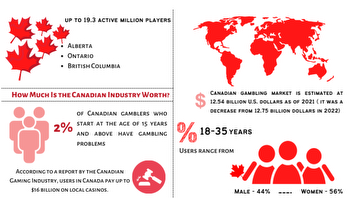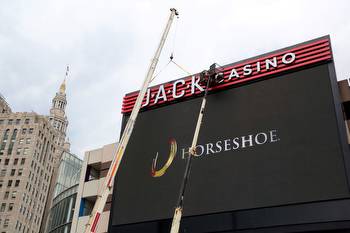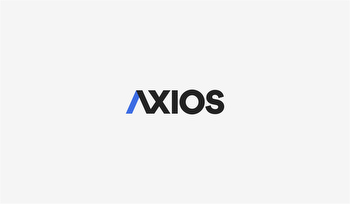Ohio, Indiana employ dozens more than Kentucky for gambling enforcement

CINCINNATI — By the time Ohio’s sports-betting industry turned 1-week-old in January, the Ohio Casino Control Commission announced fines totaling more than $1 million against four online sportsbooks that violated marketing and responsible-gaming rules.
That aggressive approach fit the profile of Ohio’s lead gambling regulator, where 55 out of 111 employees work in enforcement.
The Kentucky Horse Racing Commission is taking a different approach as it prepares to launch sports betting with a staff of 40 people, including four in enforcement.
“They’ve systematically set up the racing commission to really allow the tracks to regulate themselves, which is not a good situation for the taxpayers,” said Michael Barley, chief public affairs officer for Pace-O-Matic Inc. It’s a Georgia-based maker of video games that Kentucky lawmakers recently banned as illegal slot machines.
Pace-O-Matic joined with other companies in a lawsuit to invalidate the so-called “gray games” law as unconstitutional. Barley said the lawsuit and Kentucky’s approach to sports betting show the horse racing industry has too much political clout.
“That’s the story of Kentucky,” he said. “They have a lot of power in Frankfort. And they push and are successful in getting a very lax regulatory structure.”
The sponsor of Kentucky’s sports betting bill, Rep. Michael Meredith, R-Oakland, is confident the racing commission is the right choice regulate the new industry.
“They have regulated the horse racing market in Kentucky for decades,” Meredith said. “Obviously, they will have to bring on new staff to handle this. We know that. But I feel like with their experience, with parimutuel wagering on the horse racing side, and with the experience they’ve had with (historical horse racing machines) over the last couple of years, they’re in a good position to be able to regulate this.”
The racing commission declined to be interviewed for this story, but issued a statement:
“House Bill 551 gives (KHRC) six months from the effective date, on or about June 28, 2023, to complete the required regulatory framework. KHRC is dedicated to fulfilling its responsibilities in a timely manner while ensuring a successful implementation of sports wagering in Kentucky.”
The WCPO 9 I-Team has been looking into the regulatory practices of KHRC by requesting public records and reviewing state reports to see how it compares to gaming regulators in Ohio and Indiana.
Among our findings:
- Kentucky had one enforcement employee for every $2 billion wagered in 2022, compared to one for every $181 million in Indiana and $246 million in Ohio.
- KHRC’s Wagering Integrity Committee went nearly six years without a meeting.
- KHRC’s compliance division scaled back random audits of slots-like historical horse racing machines in 2022, according to an audit summary obtained in a public record request.
Each state regulates gambling in different ways. So, the I-Team focused on the four major entities that oversee slot machines. It's by far the biggest source of betting activity in all three states. And the four agencies that regulate slots also play a role in sports betting.
Most of this information came from annual reports by the Indiana Casino Control Commission, the Ohio Casino Control Commission and the Ohio Lottery Commission. The Kentucky data came from public record requests and the biennial report to lawmakers by the Kentucky Horse Racing Commission.
REGULATORY SCOPE
- Kentucky’s nine licensed horse tracks generated $8 billion in betting activity in the 2022 calendar year, 92% of it from a monthly average of 6,700 HR terminals that operated at tracks like Turfway Park in Florence or annex facilities like Newport Racing and Gaming. Horse racing accounted for $606 million in betting activity last year. Sports betting would add about $2 billion in annual wagers, according to state estimates.
- Indiana’s 12 casinos generated $27.6 billion in betting activity in its 2022 fiscal year ending last June, 76% of it from roughly 14,500 slot machines. Indiana casinos also generated $2.1 billion from casino table games and $4.5 billion from sports betting.
- Ohio’s four casinos generated $10.1 billion in betting activity in the 2022 calendar year, 87% of it from roughly 6,100 slot machines. Those casinos generated about $1.3 billion from table games. Sports betting generated $2.5 billion in betting activity in the three months after its January launch.
- The Ohio Lottery regulated $19 billion in betting activity in its 2022 fiscal year ending last June, 77% of it from the roughly 10,500 VLT machines that operate in seven racinos. Lottery sales added another $4.3 billion. The lottery reported $3.2 million in sports betting “handle” in the first three months of this year.
ENFORCEMENT STAFFING
- KHRC has four enforcement employees, four in licensing and two in compliance. Half of its 40 employees are tied specifically to horse racing, including 12 veterinary staff, four race stewards and four employees who oversee incentives and development funding for horse tracks.
- Indiana’s Gaming Control Commission has 152 enforcement employees, including seven in financial investigations, eight who conduct background investigations and up to 13 agents at each of Indiana’s 12 casino/racino properties. Its sports-wagering unit has three employees.
- The Ohio Casino Control Commission has 13 enforcement agents at each of the four casinos it regulates. It also has 11 licensing employees and 17 in compliance. It hired seven new employees to launch Ohio’s sports-betting industry last year.
- The Ohio Lottery Corp. has 63 employees who handle investigations and security for the seven racinos that operate video lottery terminals, or slot machines. It has six employees dedicated to sports betting.
ENFORCEMENT ACTIVITY
- KHRC’s enforcement division “conducts criminal background checks … performs breathalyzer alcohol testing and drug screening on a random basis (and) responds to complaints received from the KHRC integrity hotline,” according to its biennial report to state lawmakers. In a response to the I-Team’s public record request, KHRC said its enforcement staff worked on five cases since 2018 that led to administrative rulings against tracks and vendors. It also pointed to 12 “stewards rulings” since 2019 that “related to arrests and criminal charges.
- Indiana’s gaming enforcement division conducted 3,017 regulatory investigations in 2022, along with 1,343 criminal investigations that led to charges against 629 people, according to its most recent annual report. Its gaming control division conducted 4,089 inspections, while its background and financial investigators logged 12,480 hours on nearly 10,000 investigations.
- The Ohio Casino Control Commission’s enforcement division presented 276 cases to prosecutors in 2022, including 53 for casino cheating and 62 for entering – or trying to enter – a casino in violation of age restrictions. It also has 35 open investigations into suspected illegal casinos, according to its annual report.
- The Ohio Lottery’s annual report doesn’t provide details on its enforcement activity. It hasn’t responded to a request for that information. The agency’s sports betting unit worked with Ohio casino regulators to license six sportsbook operators to place betting kiosks at roughly 900 bars, restaurants and retail outlets statewide.
PROBLEM GAMBLING
The racing commission last month approved its first-ever policy for a voluntary exclusion list to allow compulsive gamblers to ban themselves from betting activity. Kentucky’s sports betting bill established a “problem gambling assistance account,” funded by 2.5% of the roughly $23 million in annual excise taxes expected from sports betting.
But those efforts are a long way from what Ohio and Indiana have accomplished, according to a 2021 study by the National Association of Administrators for Disordered Gambling Services. Ohio ranked 12 in the nation in public spending on problem gambling services, at 53 cents per capita. Indiana ranked 16 at 45 cents. Kentucky was one of eight states with no public funding of problem-gambling services.
Kentucky’s Family Foundation has raised concerns about both of Kentucky’s new attempts to combat gambling addiction.
“The language that was put in to set up an initial fund to try to address problem gambling actually has very broad language about how it can be used to help with any addiction,” said David Walls, executive director of the Lexington-based foundation that promotes “biblical values” and “God-honoring public policy, according to its mission statement.
Walls questions how much of the money that flows to the problem gambling fund will be spent on other addictions because House Bill 551 allows funding for “education, assistance and counseling to persons and families experiencing difficulty as a result of alcohol or drugs, or addictive or compulsive gambling.”
Walls also has concerns about KHRC’s new policy on exclusion lists because it allows each track to establish its own self-exclusion policy. Does that mean a person who joins the list at one track will be banned from betting at all regulated gambling facilities? KHRC didn’t answer the question.
“Ohio took a number of steps to combine and standardize the exclusion list so an individual only has to exclude one time, and they’re excluded from all of the venues in the state,” said Mike Buzzelli, associate director of the Problem Gambling Network of Ohio. “Doing a self-exclusion at each venue (is) a huge barrier to the individual to stay excluded, if you will.”
OTHER CONCERNS
In its biennial report to lawmakers in March, KHRC described its Wagering Integrity Committee as a seven-member panel that “reviews licenses” and investigates “wagering integrity and security issues.” It didn’t mention that the group had not met since 2017.
“We take this serious,” committee member Chuck Grubbs complained in an April 4 meeting. “This is our first meeting in six years. Why is that?”
KHRC Executive Director Waqas Ahmed explained that urgent matters often bypassed the committee in the past. Chairman Michael Dudgeon promised the committee will be more active in the future.
Drilling down on KHRC’s compliance efforts, the I-Team made a public record request for “all reports summarizing the results of every random audit” of HHR machines conducted by its two-employee compliance division since Jan. 1, 2019. KHRC provided a two-page summary that shows auditing activity sharply declined during a two-year period of massive expansion for the slots-like devices.
State records show Kentucky had 4,880 HHR machines at six locations in July 2021. By February 2023, there were 6,964 machines at eight locations. But KHRC conducted no random audits between December 2021 and March of this year. One HHR facility in Williamsburg has yet to be audited after opening last September. The 53 audits conducted this year represent less than 0.8% of all HHR machines in use.
Former state representative Adam Koenig said KHRC might be using contractors to monitor HHR devices, after a bill he sponsored in 2022 failed to deliver funding for new hires at KHRC.
“I vastly increased the fees for every HHR machine so they would be able to staff up. The administration has not released those fees,” said Koenig, an Erlanger Republican who sponsored several gambling bills over 16 years in the Kentucky House.
He lost his bid for re-election in the May 2022 Republican primary and now runs the Kentucky Quarter Horse Racing Association.
Koenig said House Bill 607 was intended to “modernize our rules and bring us up to the standards of other states.” The bill also required KHRC to develop the voluntary exclusion policy adopted at its April 18 meeting.
Kentucky lawmakers will likely hold public hearings this summer about KHRC’s staffing needs and its plans for regulating the sports-betting industry, said Sen. Chris McDaniel, R-Ryland Heights.
“You can read from the verbiage in the bill that the integrity of the gaming is very important,” McDaniel said. “I don’t expect this to be a passive situation where once we get through the industry will be able to just self-report, but rather that there will be a robust system of regulation and enforcement so that people do have confidence that when they’re placing their money, the odds are what they say they are.”


































